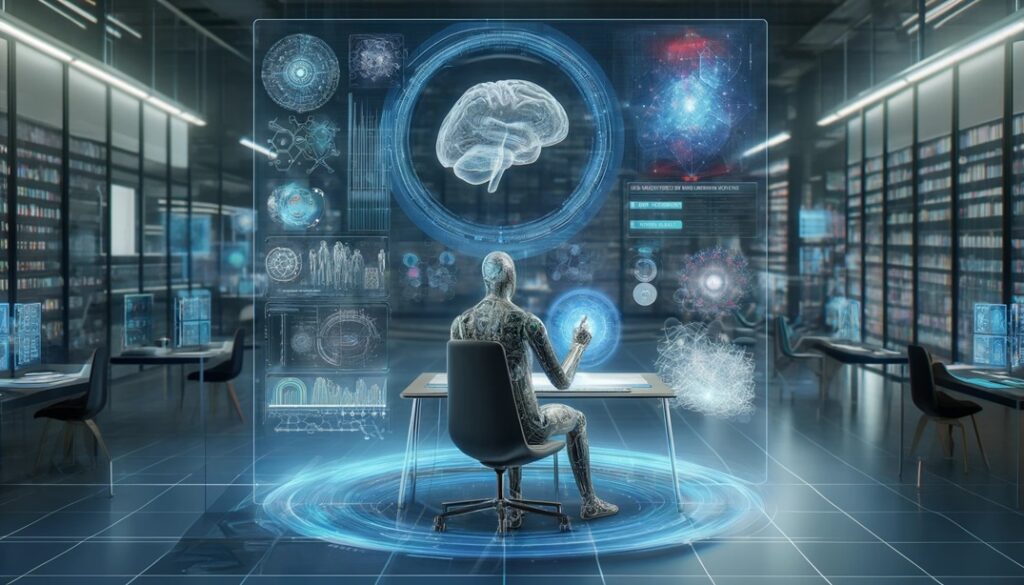Artificial Intelligence in Brain Training: Personalizing Cognitive Enhancement

The Rise of AI in Cognitive Training
Artificial Intelligence (AI) has revolutionized many aspects of our lives, and its foray into brain training is paving the way for remarkable advancements in cognitive enhancement. Through adaptive learning systems, AI algorithms analyze a user’s performance and tailor brain training exercises to individual needs, optimizing the effectiveness of cognitive development strategies. These intelligent programs are designed to improve memory, attention, processing speed, and problem-solving skills, aiming to promote neuroplasticity and enhance mental agility.
The history of AI in cognitive training shows a rapid evolution from simple pattern recognition to complex adaptive systems that can mimic human learning processes. Recent statistics indicate a surge in the adoption of AI-driven cognitive platforms, notably in educational and therapeutic settings.
Customized Learning Paths
Unlike traditional one-size-fits-all brain training programs, AI-driven platforms offer personalized learning experiences. By collecting data on a user’s specific cognitive strengths and weaknesses, AI customizes training routines that are both challenging and effective. This personalization ensures that users are neither under-challenged nor overwhelmed, keeping them engaged and motivated throughout their cognitive training journey.
For example, platforms like Lumosity and CogniFit adjust tasks in real-time, enhancing user engagement and maximizing cognitive gains. Studies suggest that such personalized approaches can lead to significant improvements in cognitive functions compared to standard training methods.
Real-time Feedback and Adaptation
One of the key benefits of AI in brain training is its ability to provide real-time feedback. As users interact with the program, AI analyzes these interactions and instantly adjusts the difficulty and type of brain training exercises accordingly. This dynamic adjustment helps maintain a state of flow, which is crucial for deep learning and cognitive improvement.
This real-time capability is supported by advanced machine learning algorithms that process large amounts of user data to fine-tune training processes, ensuring optimal challenge and engagement levels.
AI and Neuroplasticity
Neuroplasticity, the brain’s ability to reorganize itself by forming new neural connections throughout life, is at the core of cognitive enhancement. AI-powered brain training takes advantage of neuroplasticity by offering varied and complex tasks that stimulate different areas of the brain, facilitating the strengthening of neural pathways and potentially even the development of new ones.
Recent neuroscience research underscores the effectiveness of such AI-driven approaches, with evidence showing enhanced neural activity and connectivity following sustained engagement with adaptive cognitive exercises.
The Future of AI in Brain Training
The potential future applications of AI in brain training are vast. Researchers are exploring AI’s role in identifying early signs of cognitive decline, potentially aiding in the early diagnosis and intervention of conditions such as dementia and Alzheimer’s disease. Moreover, there is an ongoing investigation into how AI can be used in conjunction with other technologies, like virtual reality, to create immersive and impactful cognitive training experiences.
Looking forward, the integration of AI with neural interfaces and biometric sensors promises to revolutionize personalized cognitive training, adapting in real-time to the user’s emotional and physiological states.
Conclusion
The integration of AI into brain training represents a significant leap forward in cognitive enhancement technology. By providing personalized, adaptive, and engaging brain training experiences, AI has the potential to help individuals realize their full cognitive capabilities. As the technology continues to advance, we may see even more innovative applications that could transform our approach to mental fitness and cognitive health.
However, as we embrace these advancements, it is also crucial to consider the ethical implications and strive for responsible innovation in the cognitive training industry.